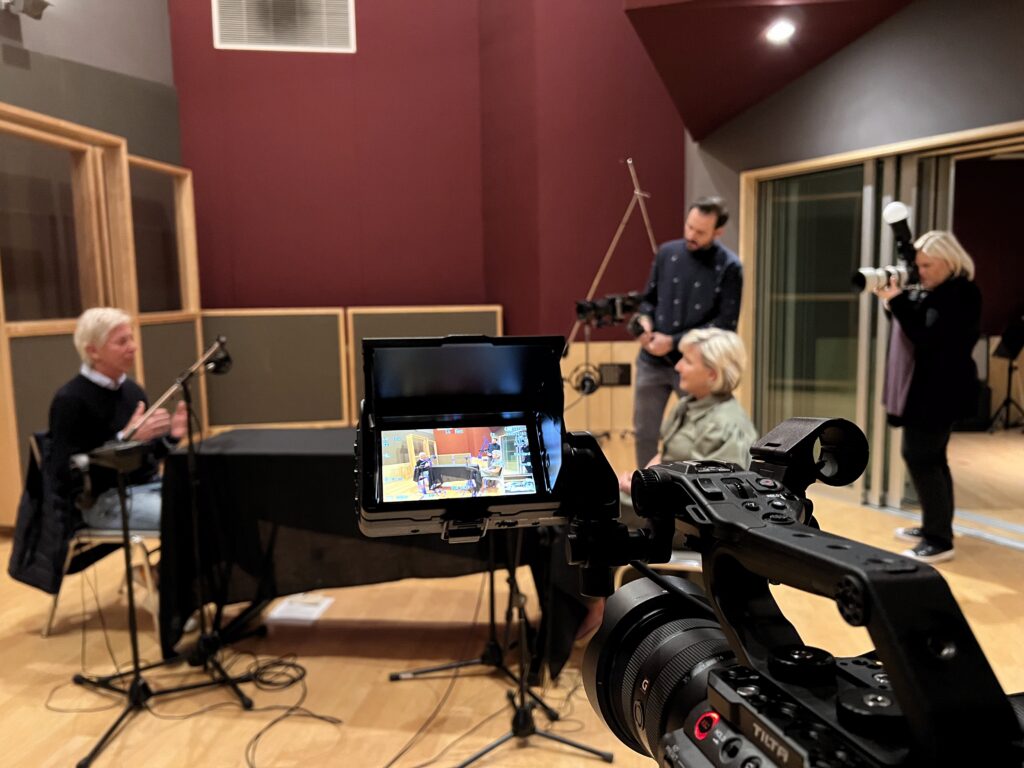How to Ask the Right Questions for Authentic Corporate Video Interviews
“The wise man doesn’t give the right answers, he poses the right questions.” – Claude Levi-Strauss
Your goal is to produce a corporate video that shows the real, human side of a leader. The key to unlocking that version of your subject is a list of strategic interview questions.
Understanding Your Audience
Before crafting questions, you need to deeply understand the video’s audience. Is the video intended to reach company stakeholders, industry peers, future recruits, current employees, or a wide public?
Go beyond basic demographics. Consider how informed your audience is about the topic at hand. Acknowledge existing emotions they may be feeling, like concern, impatience, curiosity, or hesitation. Address any preconceptions or obstacles may block them from receiving your message. Imagine what tone you would like the film to take. Pinpoint the action you want to derive from this video (https://tribepictures.com/production-process-part-1-preproduction/). What will the audience do, think, say, feel, buy, or buy into?
In understanding their motivations and potential obstacles, you’ll be able to create a set of questions that allows your leader to deliver the most effective message.
Balance Question Styles
The style of your questions shapes the directions of the responses you get. Open-ended questions will garner open-ended responses. This approach allows the subject more freedom to weave anecdotes into their answers. The longer, more thoughtful answers will turn the interview into a conversation between you and your subject.
Consider the spectrum between direct and indirect questions (https://www.forbes.com/sites/markcperna/2025/01/07/how-to-ask-better-questions-for-better-results-in-2025/). Asking about a concrete plan of action (”What will you do about this?”) evokes decisiveness. On the other hand, posing the question as a hypothetical (“What might you do about this?”) creates more space for thoughtfulness. Your level of directness should match the style of answers you hope to achieve.
Most importantly, look at the high-level picture your questions are painting. Are you highlighting your interviewee’s credibility or expertise? Are you challenging established norms about their role? Are you drawing out certain emotions?

Create Understanding and Openness
Asking the right questions can help you to uncover your interviewee’s authentic viewpoint. But without first establishing some trust on set, they may have a hard time opening up.
Just the presence of a camera can put some leaders in a fight-or-flight state. That’s when, as the director, I loosen my tie (metaphorically or literally). If I want the person I’m working with to be honest and open, I have to project the same. Rather than pushing a nervous leader into a stiff performance, I might clear the room for a relaxed one-on-one talk. I’ll start with questions about them as a person rather than them as a leader.
I make a point of asking leaders about their passions. Then I find a way to sprinkle these details into their video performances. When you talk about your passions on camera, your authenticity will shine through, and your audience will feel they’ve gotten to know you. They’ll want to listen to what you have to say afterward.
Additionally, acknowledge that you may be starting from different viewpoints in any given conversation. Frame your questions as respectfully inquisitive, not prying. This is especially crucial when the video is being made to address some company turbulence.
Sometimes, the conversation needs to put the core topic in the back seat. Some leaders, especially those with media training, can get too entrenched in ‘selling’ their answers. In doing so, they’re getting caught up in crafting the narrative and authenticity. Bring back their personality by moving the conversation to personal anecdotes. Stories about their family or hobbies can reveal a great deal about their true selves.
Ten sample questions designed to elicit authentic responses:
- “What experience shaped your leadership philosophy the most?”
- “Can you tell me about a moment that reminded you why you do this work?”
- “What’s a challenge you faced that taught you something unexpected?”
- “How has your perspective on leadership evolved since you started?”
- “What’s a story from your career that you find yourself telling often?”
- “What aspect of your work energizes you the most?”
- “Could you share a moment when you had to adapt your leadership style?”
- “What’s something about your role that might surprise people?”
- “How do you hope your team would describe the culture you’re building?”
- “What’s a lesson you learned from a failure?”
